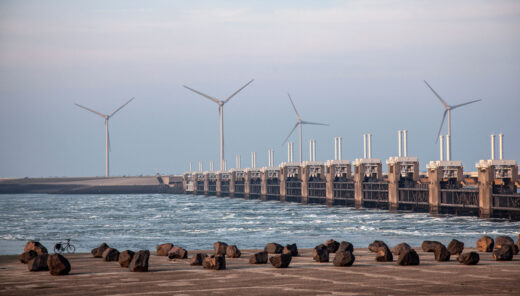Social license to operate accelerates green transition investments
Investments related to the green transition are much sought-after in Finland. Renewable energy, new fuel solutions, circular economy, and carbon sequestration are transforming industries and transportation systems, as prime locations for large investment projects are sought.
However, project investors and developers have noted that examining technical prerequisites alone is no longer sufficient. It is essential to secure social license to operate at an early stage to avoid uncertainties or delays that pose costly risks to the investment.
Need for social license to operate is human
Green transition is a significant factor in sustainability transition in Finland. It brings numerous opportunities to the country while transforming many conventional practices we’ve become accustomed to as a society.
The green transition requires substantial national actions, and investments attracted from international markets. Most often, international investments are positively received by decision-makers and officials in both large and small municipalities, and planning processes can proceed extensively between the public sector and businesses before hearing the local residents.
At this stage, resistance is often encountered when vital local nature areas vital for the local communities or employment prospects are in question, or landscape changes become concrete.
The green transition changes community power structures, expertise, economic structure, and even population base.
Communities react to changes as hopes and fears about the future grow. Negative responses often stem from the fact that the project lacks a social license to operate, even though official permits have been appropriately obtained.
Social license to operate is created through dialogue
Social license to operate refers to the acceptance of the local population and communities. It is not part of official permit processes or environmental impact assessments, but rather a matter of corporate self-regulation.
Official EIA and SEA procedures are often seen by local communities as too distant and formal processes, while the effects of the green transition are viewed from the perspective of everyday life. The threshold for SMEs, associations, or individual residents to participate in various land use hearings is high.
The problem often becomes that while official permit process discussions are held at a high level and participation requires expertise, local communities need a concrete approach and open discussion.
When discussing regional economic impacts, do they refer to orders for local SMEs or new employment opportunities for local experts? Or to staff and technical solutions being brought in from elsewhere or supply chains targeting mainly actors far outside the region?
Social license to operate is a goal that requires a long-term process of wide stakeholder engagement and repeated dialogue to achieve.
When properly timed, the dialogue between the investing company and local communities provides a way to make the difficult-to-grasp whole concrete and bridge the information gap between investors and local communities.
Trust is at the core of social license to operate for green transition investments
Social license to operate relies heavily on the acceptance of local communities and stakeholders. Obtaining or missing this permission is not a permanent condition but is based on trust formed between the investing company and local communities. Achieving and maintaining trust requires sustained cooperation with local communities.
In contrast, managing business risks of the investment can improve, recruitment of suitable talents can become easier, and the reliability of supply chains can strengthen.
Though social license to operate is voluntary and informal, it is corporate self-regulation that invests in a process emphasizing open dialogue with surrounding communities, local entrepreneurs, and residents. Through dialogue, the feared change becomes more manageable.
From the perspective of the investing company, it is an excellent means to clarify goals and refine solutions together with local communities.
Strengthen social license to operate: highlight positive and practical impacts of investments
The green transition practically means a change to the current state at the everyday level. If related discussions are held mainly at a high level with abstract concepts, it is difficult for local communities to grasp what the change means in practice: what changes, in what way, and why?
The process of social license to operate focuses on ensuring that the discussion is repeated reciprocal dialogue. Open dialogue allows investors and public administration representatives to share information and gives local communities opportunities to ask questions and receive answers.
The repetition of discussions is crucial in the process of social license to operate, as it helps to alleviate concerns and find solutions that cannot be identified without specific local knowledge. Additionally, it is a way to highlight what happens if action is not taken: what are the consequences if, for example, a new renewable energy production facility is not built?
Securing social license to operate is not a hygiene factor but a genuine process supporting the investment potential and implementation smoothness of projects. Open, recurring, and genuine dialogue with all stakeholders also opens opportunities for proactive communication and thus facilitates the success of the project.
Kirsi Pulkkinen, Senior Manager, Strategic Sustainability Consulting, kirsi.pulkkinen@sweco.fi


